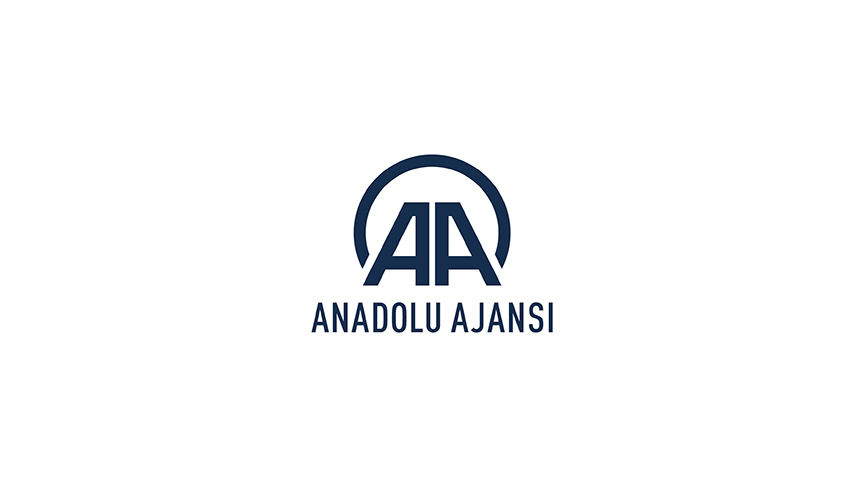
By Hassan Isilow
JOHANNESBURG
Ayub Ismail still remembers waking up very early on 27 April, 1994.
He rushed to join a long queue outside Summerfield Primary school in Chatsworth, a large suburb in Durban.
It was a day long awaited by Ismail and millions of black citizens who, for the first time, were able to exercise their right to vote.
"I was very pleased to vote because we wanted freedom," Ismail, now 38, told Anadolu Agency in an interview on the 20th anniversary of the Freedom Day, which marks South Africa's first non-racial election.
The black voters were hoping to lay the foundation for a democratic and inclusive state after years of oppression under the white minority rule.
"While growing up in Durban, I experienced apartheid when we, blacks, were not allowed to swim at the beach front," Ismail remembers, bitterly.
Ismail said blacks were only allowed to swim at a separate beach called Umgagaba beach.
"Thanks to the freedom of Nelson Mandela today we are free," he said, proudly.
"No one can stop us blacks from swimming at the beach front anymore," Ismail added with a smile beaming across his face.
The 1994 multiracial parliamentary elections saw a landslide victory by the African National Congress (ANC).
The new parliament elected ANC leader and national liberation hero Mandela as South Africa's first black president.
Nearly 20 million South Africans are registered to vote on May 7 to elect lawmakers for the National Assembly and nine provincial legislatures.
The race will likely be dominated by the ANC, the Democratic Alliance, the Economic Freedom Fighters (EFF) Party, the Congress of the People and the Inkatha Freedom parties.
-Unfulfilled Dreams-
But twenty years to the day Ismail, like many other compatriots, accuses the ANC of failing them.
"In 1994 the ANC promised people housing, jobs and a better life, but nothing has changed," he told AA.
He said many blacks were frustrated by the ruling party which they entrusted with their dreams of a better future after decades of suffering under the apartheid regime.
"Many people are not working because they cannot find jobs and as a result the youth are now smoking drugs out of frustration," said Ismail.
President Zuma insisted on Sunday that South Africa had become a better place to live in 20 years after democracy.
"Our country has done well since 1994, and we all have a good story to tell," he told crowds in Pretoria during Freedom Day celebrations.
But Ayanda Kota, the chairperson of the unemployed people movement, disagrees.
"South Africa has become the most unequal society in the world. There is high unemployment and poverty," he told AA. "So there is nothing to celebrate when our people are suffering."
Kota said the majority of South Africans have not enjoyed freedom as they continue to live in terrible conditions.
He regretted widespread poverty, unemployment and inequality in a democratic South Africa.
"If unemployment is the will of the people, then I don’t know what democracy is?" Kota said.
Mohamed Amin, a South African living in Johannesburg, agrees.
"There is no much hype in the celebrations, because promises have not been fulfilled," he told AA at his home in Mayfair, a predominantly Muslim suburb of Johannesburg.
He said that when he voted in 1994 he had expected to see a lot of economic transformation to lift people off poverty and unemployment.
Twenty years to the day, Amin said he knows many families who have been on the waiting list of free government housing for the past 15 years.
"They are still living in tinned houses in townships," he lamented. "I don't know where our country is heading."
A disgruntled Amin is not planning to vote in the May 7 general elections.
"It's useless to vote because nothing changes in this country," he said.
Malume Mongai, a middle-aged Johannesburg resident, has decided not to vote in South Africa's 5th democratic election.
"It's a waste of time," he told AA.
"The 20 years of democracy are for politicians and the elite who are living in big mansions and eating cheese in the white suburb of Sandton," said a bitter Mongai.
"With this corruption, I better keep my vote."
But unlike Amin and Mongai, Ismail remains determined to exercise the right so many people had paid their lives for him to enjoy.
"I will be voting because it's my right," he told AA.
"But this time I will be voting with the hope that the ANC might change and deliver on its promises, especially in my community of Chatsworth where the youth need jobs and services."
englishnews@aa.com.tr


